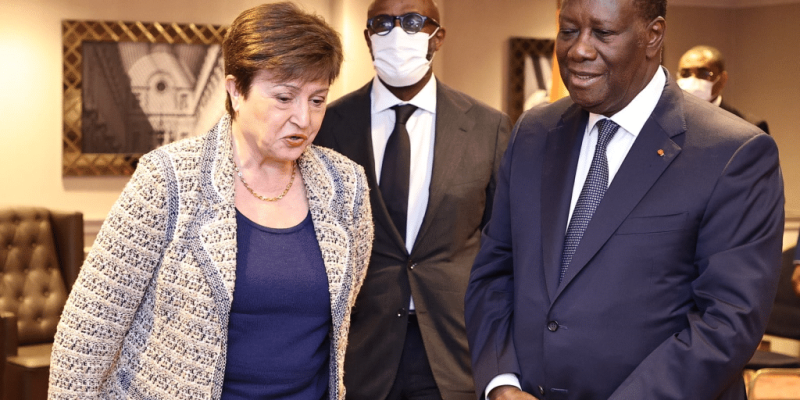As Ivory Coast faces an upsurge in flooding and heat waves, the Executive Board of the International Monetary Fund (IMF) has approved the release of $1.3 billion. The aim is to support reforms to facilitate adaptation, resilience and mitigation of the effects of climate change.
At the Summit for a New Global Financial Pact in Paris in June 2023, Kristalina Georgieva, the Managing Director of the International Monetary Fund (IMF), pledged to grant more climate financing to developing countries. Ivory Coast will receive $1.3 billion in financing, the equivalent of $975.6 million in Special Drawing Rights (SDRs), from the IMF under its Resilience and Sustainability Facility (RSF).
This facility was set up in October 2022 to finance the fight against climate change and pandemics. For the Addis Tax Initiative (ATI), this facility “marks a significant change in the way the IMF operates in these countries by covering forward-looking balance of payments needs rather than the correction of severe and immediate balance of payments imbalances”.
The reforms
In Ivory Coast, the FRD was set up to support climate action. This West African country is already living with rising temperatures, rising sea levels that threaten coastal populations and economic activities, and changing rainfall patterns that are detrimental to agricultural activities, given that this sector employs half the working population, according to the IMF.
Read also- IVORY COAST: the GCA will facilitate the provision of €2bn for climate resilience
“Economic vulnerabilities to climate change are exacerbated by the country’s high dependence on agriculture and the concentration of industrial and service activities in coastal areas, while greenhouse gas (GHG) emissions are increasing, albeit from low levels,” laments Kenji Okamura, Acting President and Deputy Managing Director of the IMF.
Climate resilience in the agricultural sector
The 30-month agreement under the DRF is therefore designed to support “the ambitious reform package drawn up by the authorities, which provides for a balanced mix of adaptation and mitigation efforts”, says the financial institution based in Washington, USA. Among the major changes planned by the Ivorian authorities are the integration of climate considerations into public finance management and improved governance of climate policies.
There is also the consolidation of safeguards for the agricultural sector, which contributes 17% of gross domestic product (GDP), but which should be reformed to reduce its impact on Ivory Coast’s forest cover. The Ivorian government’s reforms will also focus on creating a framework for green and sustainable financing, strengthening resilience to climate hazards, and controlling and reducing greenhouse gas emissions.
Jean Marie Takouleu






